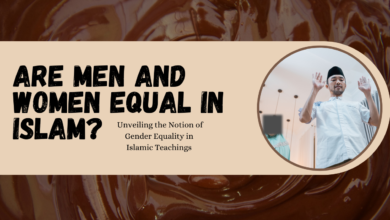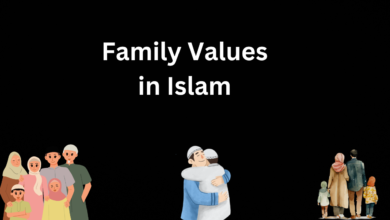What is the purpose of life in Islam?

What is the purpose of life in Islam?

Introduction
Islam, one of the world’s major religions, provides a comprehensive framework for understanding the purpose of life. Rooted in the belief in one God (Allah in Arabic), Islam’s teachings guide its followers towards a meaningful existence that is deeply connected to faith, morality, and service to others. At the heart of Islamic philosophy lies a profound understanding of life’s purpose and the ultimate goal of human existence.
Submission to the Will of Allah
Central to the Islamic worldview is the concept of submission to the will of Allah. Muslims believe that humans were created by Allah to worship and obey Him. This submission is not a blind or forced obedience but rather a voluntary act of devotion that encompasses all aspects of life. The Qur’an, the holy book of Islam, emphasizes the idea that individuals should align their intentions, actions, and choices with the divine guidance provided in its verses.
Seeking Spiritual Fulfillment
Islam teaches that life on Earth is a transient journey, a test to determine whether individuals will uphold righteousness and piety in the face of challenges and temptations. The ultimate aim is attaining closeness to Allah and eternal bliss in the afterlife. This spiritual fulfillment is achieved through acts of worship, which include prayers (Salat), fasting during the month of Ramadan (Sawm), giving to the needy (Zakat), and making a pilgrimage to Mecca (Hajj) if possible.
Morality and Ethical Living
A fundamental aspect of the purpose of life in Islam is the cultivation of moral virtues and ethical conduct. Muslims are encouraged to exhibit qualities such as compassion, honesty, humility, and patience. The Qur’an provides a moral framework that guides believers in making ethical choices, treating others with kindness and respect, and promoting justice and fairness in society.

Striving for Self-Improvement
Islamic teachings emphasize the importance of continuous self-improvement and personal growth. This includes both spiritual and intellectual development. Muslims are encouraged to seek knowledge, reflect upon the signs of Allah in the world around them, and engage in critical thinking. The pursuit of knowledge is seen as a means to gain a deeper understanding of the universe and Allah’s creation.
Service to Humanity
Islam underscores the significance of service to others, especially to those who are less fortunate. Acts of charity (Sadaqah) and community support are integral to fulfilling the purpose of life. Muslims are encouraged to alleviate the suffering of the needy, offer assistance during times of crisis, and contribute positively to their communities. These actions not only reflect the teachings of Islam but also promote empathy and compassion.
Balancing the Worldly and the Spiritual
Islam does not advocate a complete withdrawal from worldly affairs. Rather, it encourages a balanced approach where individuals engage responsibly in their familial, social, and professional lives while also maintaining a strong connection with Allah. The intention behind one’s actions is of paramount importance – earning a livelihood, raising a family, and participating in society are all seen as acts of worship when undertaken with the intention of pleasing Allah.
In essence, the purpose of life in Islam is a journey of faith, self-discovery, and service. It involves cultivating a deep connection with Allah, striving for moral excellence, seeking knowledge, and contributing positively to the well-being of others. By living a life of piety, integrity, and compassion, Muslims believe they can achieve the ultimate goal of eternal happiness in the presence of Allah in the Hereafter.

Frequently Asked Questions about the Purpose of Life in Islam
What is the purpose of life in Islam?
The purpose of life in Islam is to worship and submit to Allah (God) and to live in accordance with His guidance as revealed in the Quran and through the teachings of Prophet Muhammad (peace be upon him). This encompasses personal spiritual growth, ethical conduct, and serving the greater good of society.
How does Islam view the purpose of human existence?
Islam teaches that humans were created by Allah to worship and obey Him. This life is seen as a test, and how one lives their life determines their fate in the Hereafter – either eternal reward in Paradise or punishment in Hell, based on their deeds and faith.
Is the purpose of life solely focused on religious rituals in Islam?
While religious rituals and acts of worship are important in Islam, the purpose of life extends beyond them. Islam emphasizes a holistic approach that involves ethical behavior, kindness to others, seeking knowledge, maintaining family ties, and contributing positively to society.
How can one fulfill the purpose of life in Islam?
Fulfilling the purpose of life in Islam involves practicing the Five Pillars of Islam (faith, prayer, charity, fasting, and pilgrimage), following the teachings of the Prophet Muhammad, living a righteous and ethical life, seeking knowledge, and showing compassion and kindness to others.
Does Islam encourage enjoying worldly life or focusing solely on the afterlife?
Islam does not discourage enjoying the blessings of this world, but it emphasizes moderation and responsibility. The ultimate focus, however, is on preparing for the eternal life in the Hereafter, while using the resources of this world to benefit oneself and others.
What role does intention (niyyah) play in fulfilling the purpose of life?
Intention is crucial in Islam, as it is the driving force behind actions. Sincere intentions turn everyday activities into acts of worship when done for the sake of pleasing Allah. It transforms mundane tasks into meaningful actions that contribute to fulfilling the purpose of life.





